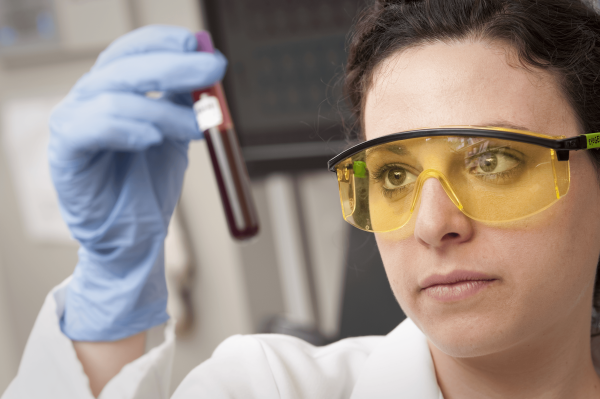Researchers at the Howard Hughes Medical Institute have created a blood test that can pinpoint every single virus you’ve ever had. This new technology, dubbed VirScan, can detect over 1,000 strains of 206 viruses that are affecting or have affected you.
The best part? The test only costs $25.
This new method streamlines the original procedure for testing the presence of viruses. Instead of testing for specific types of viruses one by one, this improved technology makes testing for viruses easy and accessible by screening a patient’s blood for the antibodies of viruses they’ve experienced in the past.
Stephen Elledge, an HHMI investigator at Brigham and Women’s Hospital and lead researcher of this new development, created the technology by synthesizing over 93,000 short pieces of DNA encoding different segments of viral proteins. These viral protein DNA segments were integrated with bacteriophages, which manufacture protein segments to display on their surfaces.
Once the blood sample is taken from a patient, the bacteriophages are mixed with the sample, and all of the bacteriophages are given an opportunity to bind to their antigens. By identifying which protein pieces were bound to the antigens, scientists were able to identify all the viruses that a person had previously encountered. At this point, it takes about two to three days to analyze 100 samples. Elledge is optimistic that in the future, the rate of analysis will increase with further improvement and development.
Image Source: Jonathan Knowles
Elledge says, “We were in the sensitivity range of 95% to 100% for [HIV and Hepatitis C patients], and the specificity was good — we didn’t falsely identify people who were negative. That gave us confidence that we could detect other viruses, and when we did see them we would know they were real.”
After analyzing a sample of people from 569 people from four countries, Elledge and his colleagues discovered that each person has antibodies for 10 different specific types of viruses. Unsurprisingly, the adult sample antibodies differed from antibodies found in children, who had not yet been exposed to those viruses. Additionally, patients living in South Africa, Peru, and Thailand were generally found to have more antibodies than people in the United States.
The most beneficial factor of this new product, however, may be its ability to continuously improve upon itself. With every blood sample the technology receives, the researchers are able to fine-tune their analysis to improve the sensitivity of VirScan, as they will be better prepared to expect certain viruses with certain blood samples.
Feature Image Source: Checking Blood Sample by National Eye Institute










